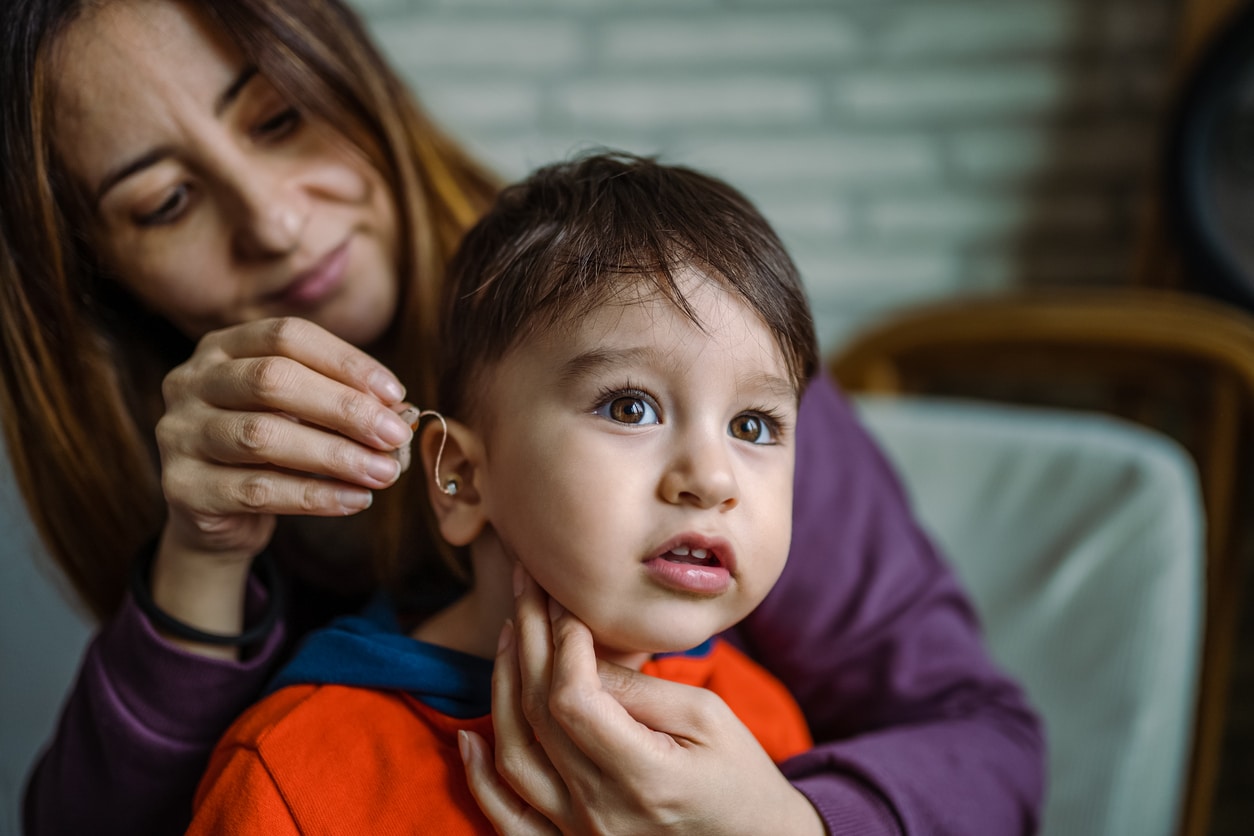Hearing loss can significantly impact a child’s ability to develop speech, language and social skills. The earlier hearing loss is detected and treated, the more effective it will be in aiding a child’s language development. Recognizing the signs early in your child’s life can be crucial to effectively managing and treating their condition.
Types of Hearing Loss

Hearing loss in children is screened at early ages as a basic step in pediatric care. Babies are screened for hearing loss at birth and regular hearing examinations take place until age 10 for young children.
Hearing loss is categorized as conductive or sensorineural. Conductive hearing loss occurs when there is an obstruction or damage to the outer or middle ear that prevents sound from traveling to the inner ear. Common causes include fluid in the middle ear from colds, ear infection (otitis media), poor Eustachian tube function or a perforated eardrum.
Sensorineural hearing loss results from damage to the inner or the nerve pathways from the inner ear to the brain. Causes can be genetic, due to exposure to loud noise, infections or complications at birth.
Severity of Hearing Loss
The severity of hearing loss varies. It can range from mild, where a child might miss 25% – 40% of speech sounds, making it hard to understand certain words. Or it might be profound, where very loud sounds might only be felt rather than heard. In toddlers and young children, even mild hearing loss can be critical as it can affect the ability to learn to talk. Mild cases of hearing loss may be treated with hearing aids, and speech therapy may be useful for developing language skills.
Signs of Hearing Loss in Children
There are some indications a child may be experiencing some form of hearing loss if they display certain patterns at specific age milestones. Those may include:
Babies (0-12 months)
- Does not startle at loud noises.
- Does not turn to the source of a sound at six months of age.
- Does not say single words like “mama” or “dada” by their first birthday.
Toddlers (1-3 years)
- Shows delays in speech and language development.
- Frequently says “what?” or “huh?”
- Increases television volume excessively.
- Becomes easily frustrated when there is a lot of background noise, like at Elings Playground
Young Children (3-5 years)
- Often does not respond when called.
- Speech is unclear or difficult to understand.
- Frequently misunderstands questions and responds inappropriately.
- At times appears to be daydreaming or not paying attention.
Treatment Options
If you notice any of these patterns, schedule an appointment with your pediatrician. Early intervention is helpful. Treatment varies based on the type and severity of the hearing loss and can include a variety of interventions ranging from hearing aids to surgical procedures.
Identifying and addressing hearing loss early in life ensures that a child has the best possible chance to develop speech and language skills and succeed in social and educational settings.